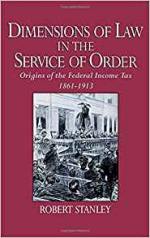Bailouts Explained – Clarke and Dawe: European Debt Crisis
Clarke and Dawe – European Debt Crisis Also see Federal Debt; Budget Deficit / Budget Surplus; Date Shifting / Fiscal Transparency / Fiscal Illusion; Public Debt / Debt Ceiling; “We Don’t Want Your Clunkers“. Courses Congressional Operations Briefing – Capitol Hill Workshop Drafting Federal Legislation and Amendments Writing for Government and … Read more





